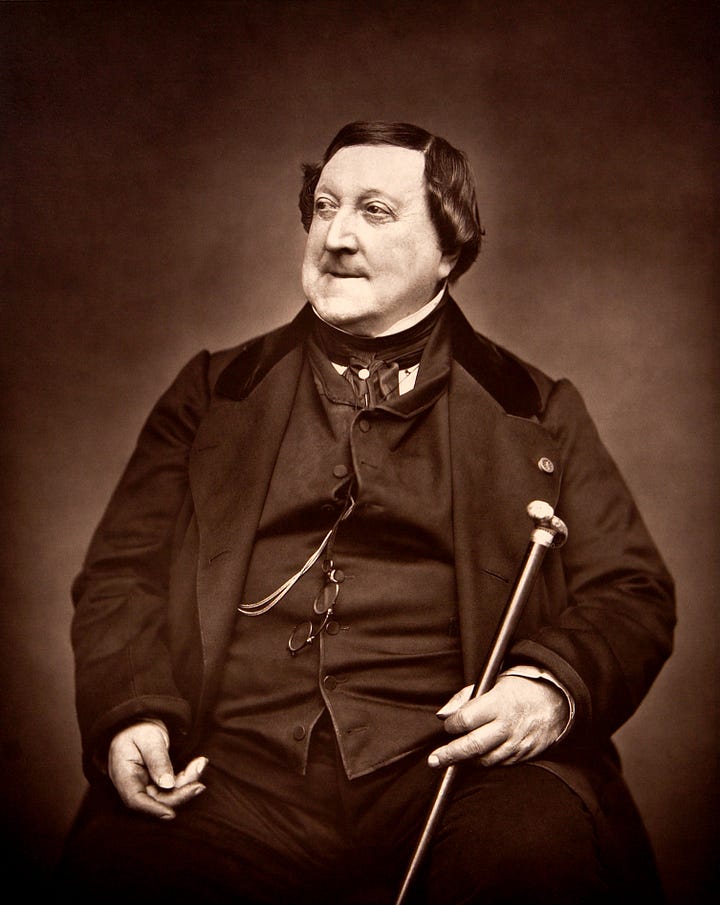

“After Rossini dies, who will there be to promote his music?”―Richard Wagner
Il barbiere di siviglia "Largo al factotum"
If anyone needed proof of the lasting quality of classical music, they need look no further than popular music from the late 1950s on. Many singers, songwriters, and groups turned to classical music not just for inspiration but also for actual themes, tunes, and harmonies. In most cases, these “updates” (for lack of a better term) were pretty good. Some were quite imaginative; others were, frankly, just rehashes that were not an improvement. But they are all interesting, and in my classical music posts for March I introduce you to (or reacquaint you with) some of the best―and worst!
Gioachino Rossini was a real rock star in his day. His comic operas were incredibly popular, and didn’t he know it! Contemporary reports tell of him lying in bed, surrounded by his entourage, composing away, chatting, eating, drinking, who knows what else? There is a story that one time, Rossini dropped a piece of music and was too lazy to get out of bed, so he just started a new composition. One of his friends picked up the bit of manuscript, and Rossini turned that into a completely different piece.
According to Schuyler Velasco, Rossini “completed an average of four operas a year during his formative composing years, some in as little as two weeks. ‘Writing opera was really like writing sitcoms in television today,’ [musicologist Steven] Ledbetter says. ‘The style involved little emphasis on the orchestra and mostly focused on keeping the singers happy. Rossini was a wonderful singer, so he knew how to do that’.”
So much of Rossini’s music is a part of 20th- and 21st-century popular culture, particularly cartoons and television. But one of my favourite examples is the song “Grace Kelly” by the British singer Mika. This song, first released for download in 2007 and later included on Mika’s Life in Cartoon Motion album, is based on Figaro’s aria “Largo al factotum” from The Barber of Seville. You will have to listen very carefully to hear this; Mika did a very good job of using the melody of the aria without doing a straightforward sample or steal. He has said in several interviews that he based “Grace Kelly” on “Largo al factotum”―how terrific of him to acknowledge that!
By the way, Wagner wasn’t the only composer to be slightly (or perhaps not so slightly) dismissive of Rossini. Schuyler Velasco again: “‘So you’re the composer of The Barber of Seville,’ Beethoven said. ‘I congratulate you. It will be played as long as Italian opera exists. Never try to write anything else but opera buffa [comic opera]; any other style would do violence to your nature.’ Rossini politely reminded Beethoven that he had already written several well-received serious operas; he had even sent them to Beethoven for a look. ‘Yes, I looked at them,’ the old man retorted. ‘Opera seria is ill suited to the Italians. You don’t know how to deal with drama.’”
My classical music post for today is Gioachino Rossini’s “Largo al factotum” and Mika’s “Grace Kelly.”



